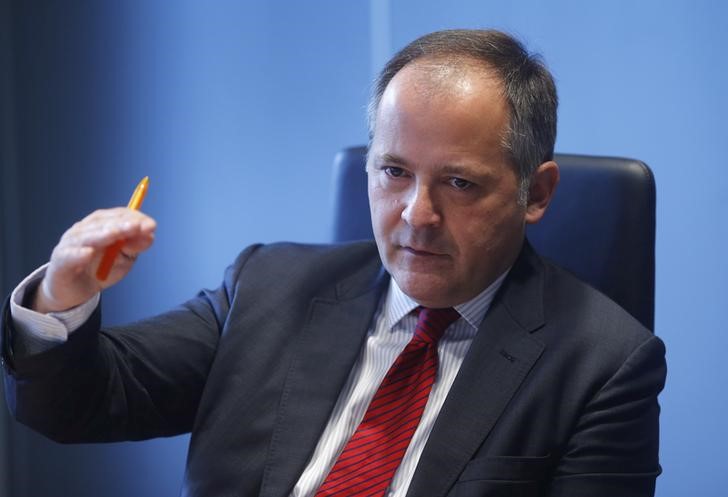By Ingrid Melander and Jean-Baptiste Vey
PARIS (Reuters) - The European Central Bank's quantitative easing programme has kicked off without a hitch, ECB executive board member Benoit Coeure said on Thursday, adding that the central bank had not had problems in finding bonds to buy.
The ECB has bought 9.8 billion euros worth of assets in three days, Coeure said, with an average maturity of nine years, putting it well on track to reaching a total of 60 billion euros in bonds in March, as intended by the ECB. Purchases under the programme began on Monday.
"QE is working, there is no doubt it will work," Coeure said in a speech in Paris.
Like the Japanese and U.S. central banks before it, the ECB launched the money-printing scheme to help lift euro zone inflation from below zero back towards its target of just under 2 percent and support economies across the 19-country bloc.
But with some domestic investors reluctant to sell, analysts have questioned whether the ECB can reach its goal of buying a trillion euros of mainly sovereign bonds in the next 18 months.
Coeure sought to allay those concerns, saying there were plenty of bonds available to be bought. The ECB is buying bonds in a way that respects the functioning of markets, he said, adding: "We don't want to kill the market."
He said the ECB wants to be predictable and regular with its quantitative easing policy, adding: "Considering the uncertainties regarding U.S. monetary policy and the repercussions on emerging countries, it is very important to create a bubble around euro zone countries."
Coeure said European governments needed to step up reforms and should not only rely on a cyclical recovery based largely on low oil prices. The lower euro, Coeure said, is a logical consequence of diverging European and U.S. monetary policies.
The euro
"It is the logical and natural consequence of diverging monetary policies between the euro zone and the United States," Coeure said. "There is maybe an additional element over the past few days linked to the markets learning ...(how to deal with) the impact of our bond-buying that started only on Monday."
He said this was a "transitory phase" comparable to the ones that had occurred when central banks in the United States, Japan and Britain had launched their own quantitative easing plans. "The market is learning," he added.
Separately, French President Francois Hollande said the euro was now at the right level versus the dollar, welcoming the impact of steps taken by the ECB.

Just days after euro zone finance ministers agreed to give France yet another reprieve on its fiscal targets, Coeure insisted that rules must be respected and warned against treating large euro zone countries differently from small ones.